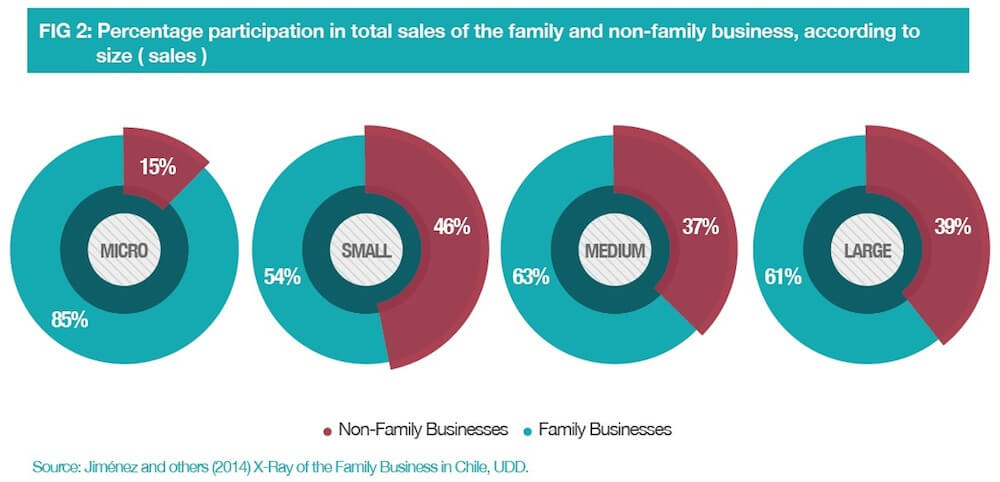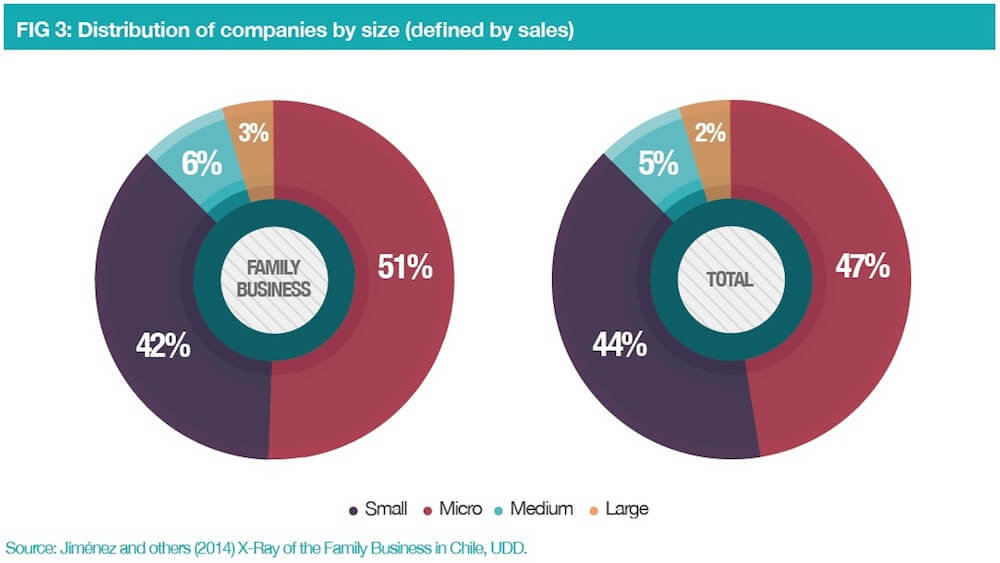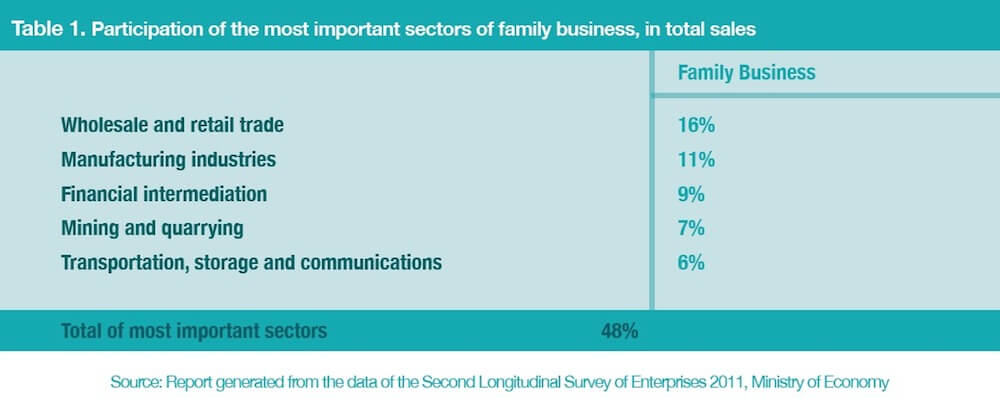The X-Rray Study of the Centre for Enterprising Families, Universidad del Desarollo
Only few nations around the world have managed to formulate the contribution family businesses make to their respective economies in facts and figures. While family businesses provide clear incentives to the global economy related to employment, innovation and revenue, accurately defined gains are not always available. In an attempt to remedy the gaps in our understanding, the Centre for Enterprising Families (CEFAE) at the Economics and Businesses Faculty of the Universidad del Desarrollo of Santiago, has recently published its first X-Ray study of the family business landscape in Chile. The report attempts to shed more light on the realities of family businesses in the Latin American country. The data is sourced from the Second Longitudinal Survey of Enterprises (II ELE) of 2011, performed by Chile’s Ministry of Economy.
[ms-protect-content id=”4069, 4129″]
The numbers
The first fact that the X-Ray study underlines is the prevailing presence of family businesses in the national business framework. A long held belief that family businesses constitute a crucial segment of the Chilean economy is exemplified through a series of data: To begin with, approximately four out of five companies in Chile are family businesses, making them the norm rather than the exception within the private sector (Fig. 1). Family businesses make significant contributions to social welfare, national sales and sector innovation. In short, the CEFAE study reveals just how closely tied family business performance is to that of Chile as a nation.
Sales and Scope
Family businesses account for over 65% of total national sales in Chile. This critical involvement is demonstrated across the business landscape, independent of the size of the company. Figure 2 proves that family businesses are the leaders in sales in each company size category from micro to large size.
Despite these overwhelming statistics, the notion that family businesses are by definition small and possess low productivity has persisted across Chile. This mode of thinking has allowed the collective opinion to form around the belief that family firms are unfavourable when compared to so-called “professional” non-family companies.
This widely accepted misconception rivals the reality, which the X-Ray study puts forth as varying forms of the family business model can be found throughout the productive framework, most notably in the form of micro and small companies. Amongst the large businesses included are big retailers, banks and business groups involved in sourcing natural resources. No matter their size, the family business model is vital to Chile’s economy.
Distribution by sector
Not only are family businesses varied in size, they also are dominant in each industry sector. This can be seen mainly when looking at Chiles’ five main sectors: The “Retail and wholesale trade” sector includes approximately 40% of all family businesses. Meanwhile “Agriculture, ranching, hunting and forestry”, “Manufacturing industries”, “Transportation, storage and communications”, “Real estate, business and renting activities” and “Construction” each represent roughly 10% of family businesses. In contrast nearly half of all non- family firms in the country are active in “wholesale and retail trade” and “real estate activities”. The strongest sectors are largely family-dominated. In Table 1 the participation of family businesses in these sectors is detailed.
Family business employment provisions
One of the most important contributions Chilean family businesses provide are employment opportunities. Family businesses deliver an astounding 63% of the country’s employment and lead in long-term retention of employees. Employment in Chile, however, still faces challenges such as the inclusion of women in the work place and the lack of skilled workers. As family businesses are the major employers, it will fall to them to forge ahead in creating progressive work places that allow for innovation and gender equality.
Entrepreneurship and innovation
Based on the X-Ray study’s findings, the importance of the family business model in Chile is made abundantly clear. The advancement of families, which own and rely on these businesses, is a considerable advantage yet at the same time it means that the Chilean economy at large is also heavily reliant on their success. The family business is thus positioned in Chile as an economic unit of central importance and as demonstrated by the study must move closer towards a scenario which champions its merits. Abandoning widely held fallacies which deem the family business a minor, unprofessionally run end of the country’s economy will help to tie its achievements closer to that of the country’s long-term endeavours.
The X-Ray study helps to convey the vast impact Chile’s family businesses have on the country. Delivering a deeper knowledge of these entities and their environment will encourage a more impactful inclusion in the public debate and contribute to the increasing international interest associated with enhancing the relationship between family businesses and public policies.
Tharawat Magazine, Issue 22, 2014
[/ms-protect-content]
















